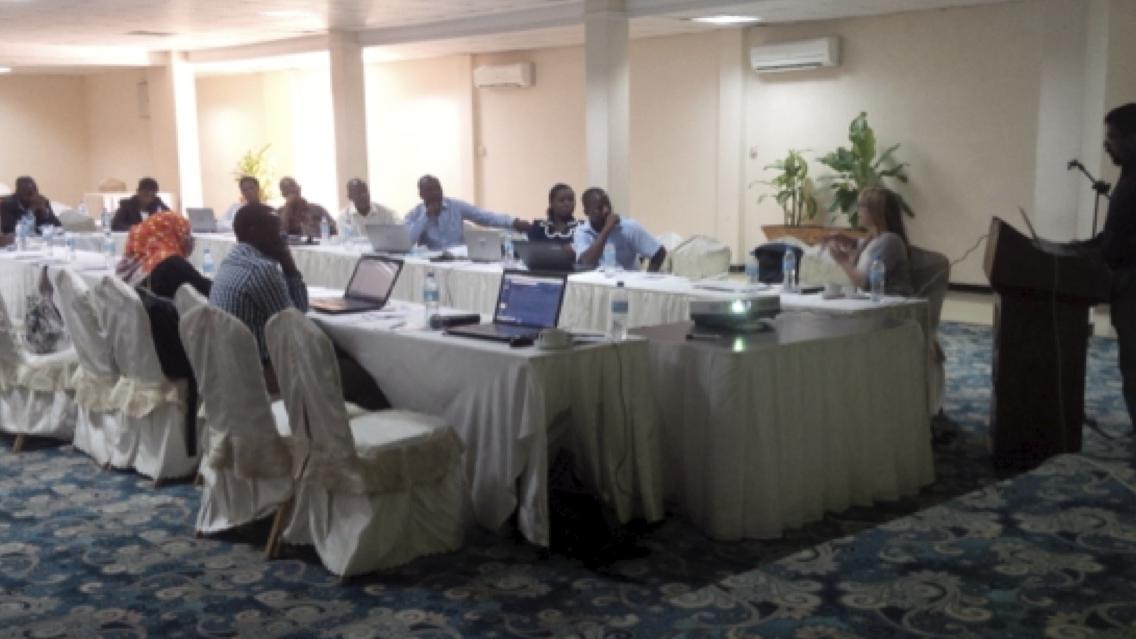SERVIR workshop to help Tanzanian farmers

Agriculture is the backbone of economies in East African countries such as Tanzania, where the primary staple crop is maize. Dry spells are of particular concern to farmers when it comes to planting and crop productivity. They need more information about droughts and dry spells, yet getting that information to farmers remains a challenge.
SERVIR Applied Sciences Team members Stephanie Granger and Narendra Das, together with Denis Macharia of the Regional Center for Mapping Resources for Development (RCMRD), held a workshop recently in Dar es Salaam, Tanzania, to help solve this problem. The event, which took place April 20-24, was intended to help ministry and university personnel use data from Earth observation satellites to assess drought and crop productivity in Tanzania. These assessments provide the critical information farmers need.
The Tanzanian Meteorological Agency (TMA) hosted the workshop, held as part of a SERVIR Applied Sciences Team project led by Granger. TMA can use the satellite information in their ongoing efforts to produce probabilistic indicators of rainfall to help farmers determine the likelihood of precipitation within a specific time period. TMA is experimenting with an SMS text messaging service that provides this critical information to farmers and said that the data produced by the SERVIR project could be integrated into their SMS service.
Participants at the workshop included key environmental and agricultural agencies, including TMA, the Ministry of Agriculture, Ministry of Land, Ministry of Housing, the Office of the Vice President of Tanzania, and representatives from Sokoine University of Agriculture and the University of Dar es Salaam, a leader in climate change and agricultural research in the region.
This was the first of four National workshops organized by RCMRD to introduce SERVIR’s work in the area of drought and crop productivity as well as other SERVIR-Africa projects. The aim is to raise awareness about the projects and get feedback from practitioners in Eastern and Southern Africa.

